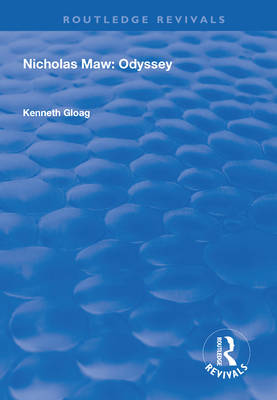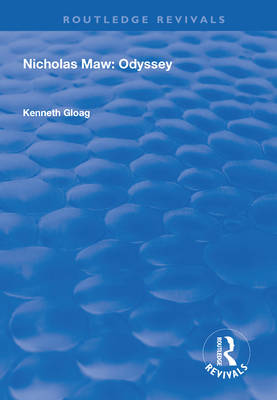
- Retrait gratuit dans votre magasin Club
- 7.000.000 titres dans notre catalogue
- Payer en toute sécurité
- Toujours un magasin près de chez vous
- Retrait gratuit dans votre magasin Club
- 7.000.0000 titres dans notre catalogue
- Payer en toute sécurité
- Toujours un magasin près de chez vous
Description
This book was originally published in 2008. Nicholas Maw's Odyssey is a landmark in contemporary music; at approximately 90 minutes it is one of the longest continuous examples of music written for full-orchestra and received a first, truncated, performance at the 1987 BBC Proms. It took Maw many years to complete and was later recorded to great acclaim by Sir Simon Rattle and the City of Birmingham Symphony Orchestra.
In his examination of Odyssey, Kenneth Gloag provides a detailed discussion of Maw's musical identity and reputation as a contemporary composer in relation to romanticism, modernism and postmodernism, taking into consideration his break-through work Scenes and Arias (1962) and the subsequent progression to Odyssey. The book investigates issues of time and narrative crucial to the generation of the work's remarkable length, and considers the relationship between the sectionalization of the score and prevailing sense of unity in the music.
Situating Odyssey in larger historical and critical frameworks, Gloag evaluates the initial reception of the work and reflects on Maw's music composed after Odyssey.
Spécifications
Parties prenantes
- Auteur(s) :
- Editeur:
Contenu
- Nombre de pages :
- 152
- Langue:
- Anglais
- Collection :
Caractéristiques
- EAN:
- 9780367147518
- Date de parution :
- 07-01-21
- Format:
- Livre broché
- Format numérique:
- Trade paperback (VS)

Les avis
Nous publions uniquement les avis qui respectent les conditions requises. Consultez nos conditions pour les avis.






